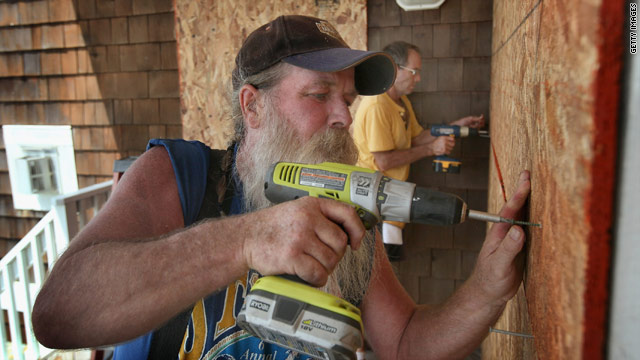 |
| Hurrican Ivan visits the Gulf Coast |
Anyone who've experienced a major tropical storm or Hurricane can tell you that even with the most expert forecasting available, gathering up supplies and battening down hatches for a coming storm is an activity much better done sooner than later, and the sooner you prepare, the better prepared you'll be later on.
 |
| Wine and Vodka are for medicinal purposes... |
For instance, if rain flooding & tornado is more of a threat, is your house capable of withstanding it initially, or would damage afterward make your home uninhabitable? You might have to consider evacuating before a storm, or risk being stranded or flooded out. Do you have a plan of evacuation? Do you know where a shelter is? Do you know what roads are designated as evacuation roads? If your home is not in a flood risk area and you do not intend to evacuate, is it instead in a area that may be cut off from the outside world and modern utilities in the aftermath? If so, do you have the preparations to subsist without clean water, or electricity? Just how many days could you stay in your home under such conditions.
Flexibility in your disaster prep plans should always be built in. Even if you intend to stay put, you should always have ready some method to get gone quickly. And conversely, if you intend to bug-out, be equally prepared to get stuck in one place. How you accomplish depends on individual circumstance, put always consider the first rule of Murphy's Law... If anything can go wrong, it will.
 |
| "This year I'm leaving these boards up year round" |
While we all strive to be self-reliant, it is natural to have a cause to work from. What stronger, surer cause is there in that what nature may bring. While no one ever wishes to have to put in action, that what we plan for, there is still reason enough to plan. Here's to hoping that your summer is safe, warm, and trouble free, if not storm free.
Here's some good links to get you started in your Storm Prep plans:
Make the Hurricane Preparedness webpage from the National Weather Service's National Hurricane Center your first stop.
It'd be foolish not to make use of the Maps & Information available from FEMA. Here's their Hurricane page.
Be sure to download the American Red Cross Hurricane Checklist PDF
If you pay taxes you paid for the Hurricane Page from Ready.gov already, make good use of it.

No comments:
Post a Comment